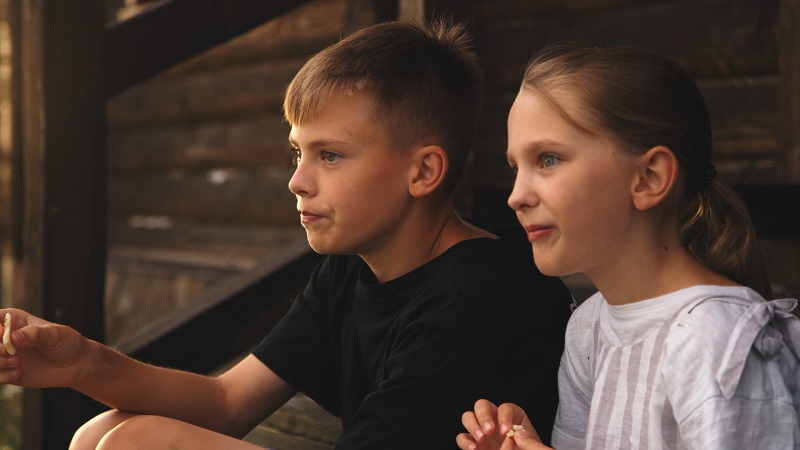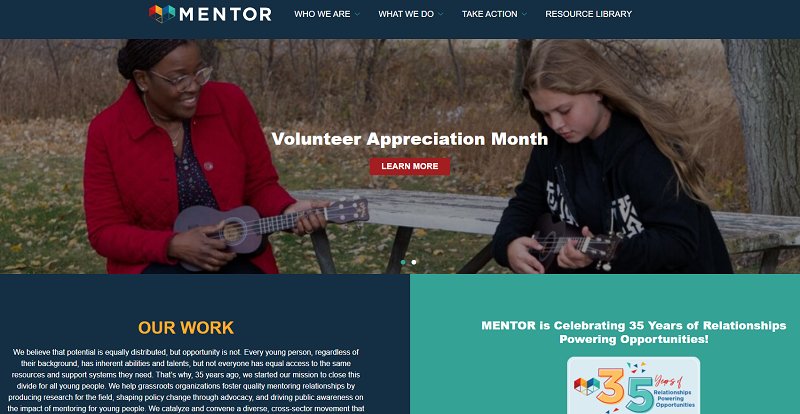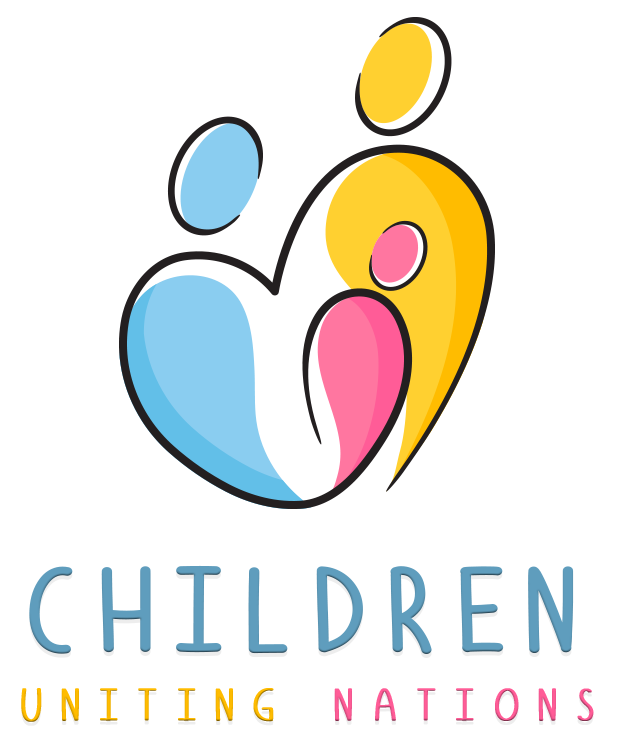Mentoring helps children build confidence, make better decisions, and stay on track in school and life. In 2025, new studies confirm that mentoring creates long-term changes in behavior, academic performance, emotional growth, and social responsibility.
More programs now track real outcomes, collect hard data, and reveal patterns that explain why mentoring remains one of the most effective support systems for kids of all backgrounds.
Mentored kids do not only show better grades. They build stronger relationships, develop leadership habits early, and gain tools to handle conflict, stress, and pressure. Those with access to consistent mentoring are more likely to graduate, attend college, and stay out of trouble. Families benefit too, since mentoring also improves home dynamics and community involvement.
This article breaks down the full list of benefits.
Methodology
This article was built using verified data and research published in 2025 by leading organizations focused on youth development, education, and mental health. All statistics, program outcomes, and observed benefits reflect findings reported by national mentoring leaders and academic studies. Programs like iMentor, Big Brothers Big Sisters of America, and Friends of the Children provided current success rates and first-hand program data.
Supplemental analysis included peer-reviewed insights such as the Oxford research on mentoring and honesty found here, mental health program studies from SpringerLink, and national behavior trends from sources like The Guardian. All links reflect real, published 2025 data used to ensure accuracy and transparency throughout the article.
Academic Improvement Backed by Consistent Support
| Outcome | Mentored Students | Non-Mentored Students |
|---|---|---|
| College Acceptance Rate | 93% | Significantly lower |
| Improved Study Habits | Consistently seen | Rare |
| Positive Attitude Toward Learning | Strong | Often lacking |
| Drop in Summer Melt (NYC example) | 13% | Higher |

Mentoring Boosts Academic Performance
Mentoring programs have shown to significantly enhance students’ academic outcomes. Instrumental mentoring that focuses on skills like organization, study structure, and accountability tends to create measurable gains in classroom performance. Programs that stay consistent and build trust see the strongest academic growth.
Structured Support Leads to Better Grades
Mentors help students create study routines, prepare for exams, and develop time management habits. When a child feels supported by someone who checks in regularly, academic pressure becomes easier to manage. Learning becomes less about fear and more about focus.
Real-Life Impact: iMentor’s Results
In the 2022-2023 school year, iMentor’s structured mentor-matching system led to a 93 percent college acceptance rate among its high school seniors. In New York City, summer melt dropped to 13 percent among mentored students. That means more kids followed through and enrolled after high school.
Personal Perspective
Students who struggle in school often lack adult guidance that feels personal and reliable. When mentors step in, they fill that gap. Teachers handle the classroom, but mentors make sure homework gets done, setbacks do not become excuses, and small wins are noticed. That changes outcomes over time.
Stronger Mental Health and Emotional Stability
Mentoring gives kids something many lack-emotional safety. When children have someone consistent who listens without judgment, emotional stress does not pile up the same way. A mentor can become the one adult who helps make sense of pain, fear, or anxiety without punishment or shame. That opens the door to real change.

Emotional Safety Starts with Trust
Kids Need One Reliable Adult
- Someone who shows up every week builds emotional trust.
- Kids open up when they know the person will not leave.
- Trust builds slowly, but once in place, it becomes a foundation.
How Mentors Build That Trust
- Staying on schedule.
- Listening without interrupting or correcting.
- Asking questions that show real interest.
- Never using mistakes as reasons to shame or mock.
Reduction in Depression and Anxiety
Mentored kids report lower stress levels over time. School-based mentoring programs that include social-emotional support show a sharp drop in depressive symptoms over a 12-month period. Mentors do not act as therapists, but their presence keeps emotions from boiling over.
| Emotional Challenge | Change in Mentored Kids (12 Months) |
|---|---|
| Depressive Symptoms | Decrease by up to 40% |
| Anxiety and Worry | Lower intensity and frequency |
| Emotional Withdrawal | Reduced by daily interaction |
| Anger and Outbursts | Less frequent, more managed |
Increased Self-Esteem and Personal Confidence
Mentoring improves how kids see themselves. A child who receives regular encouragement starts to believe in their own value. They begin to speak more clearly, stand straighter, try harder, and recover faster after failure.
That shift in confidence leads to stronger participation at school, healthier friendships, and better personal boundaries.

How Mentors Build Confidence
Encouragement That Feels Real
- Praising effort, not outcome: “You stayed focused even when it got hard.”
- Noticing progress others miss: “You handled that situation better than last week.”
- Asking for opinions and listening to the answer.
Reflection Creates Growth
- Kids begin to see their own changes.
- Journaling or open conversation helps track confidence gains.
- Simple questions like “What are you proud of this week?” reinforce self-awareness.
Better Social Skills and Peer Relationships
Mentoring improves the way children interact with others. Many kids struggle with reading social cues, managing emotions in groups, or resolving peer conflict. Mentors guide them through those struggles without judgment. That guidance leads to better friendships, fewer fights, and stronger communication.
Mentors as Social Coaches
Core Skills Taught Through Mentoring
- Listening without interrupting
- Waiting for cues before speaking
- Standing up respectfully to a friend
- Saying no without escalation
- Offering support to others in group settings
Peer Connection Grows Through Practice
Mentors often role-play situations with the child:
- What to do when someone gets left out
- How to handle teasing
- How to join a new group activity
- How to help another kid feel included
Lower Risk of Drug Use and Problem Behavior
Mentoring programs reduce risky behavior by providing structure, accountability, and emotional grounding. Children who feel seen and supported are less likely to turn to drugs, theft, violence, or other harmful choices. When a mentor checks in regularly, kids have fewer chances to spiral unnoticed.
Prevention Through Connection
- Mentored kids are more likely to talk about pressure or unsafe situations.
- Trusted adults guide kids through early warning signs.
- Mentors explain consequences without threats or lectures.
Daily Habits Matter
- Weekly structure helps reduce idle time.
- Consistent expectations improve self-regulation.
- Kids start avoiding high-risk environments on their own.
Higher Graduation and College Attendance Rates
Mentoring leads to stronger school retention and higher rates of high school completion. When someone believes a child belongs in college-or in any long-term plan-the child begins to believe it too. Mentored students also have better post-graduation follow-through.

Helping Students Navigate the Process
- Mentors assist with applications, essays, and deadlines.
- They guide families through forms and planning.
- Many programs extend mentorship into the first year of college.
Real Long-Term Impact
- More students enter higher education.
- Fewer drop out during the transition period.
- Youth develop realistic academic goals earlier.
Positive Influence on Family and Community Life
Mentoring affects more than the child. It reshapes family dynamics and strengthens the community. A mentored child becomes a more communicative son or daughter. Siblings watch and follow patterns. Parents report better home behavior. Teachers see ripple effects in classrooms. That wide reach matters.
Programs that involve family outreach see even deeper gains. Parents who connect with mentors feel supported, not judged. That trust leads to stronger school-family relationships and more stable home environments.
Mentoring heals in layers. A child who feels stable at school acts with more calm at home. That child begins showing younger siblings how to manage stress, how to speak kindly, how to care about their day. The community begins to change, not through policy, but through one quiet influence at a time.
Top Mentoring Programs for Kids in the U.S. (2025 Edition)
Strong mentoring programs share one feature: consistency. The best programs pair kids with trained mentors, build long-term relationships, track real outcomes, and adapt to the needs of both the youth and the families involved.
In 2025, several programs across the United States have set clear standards for success. Their results speak through college acceptance rates, behavioral change, emotional growth, and lifelong impact.
| Program | Target Age | Structure | Key Focus Area | Duration of Mentorship |
|---|---|---|---|---|
| iMentor | High school | Online + In-person | College access | 2-3 years |
| BBBSA | Ages 5-18 | Volunteer-based | Behavior, relationships | Varies (usually years) |
| Friends of the Children | Early childhood | Paid mentors | Long-term life guidance | 12 years |
| MENTOR | All ages (indirect) | Network support | Program quality & scale | N/A (advisory) |
iMentor
iMentor focuses on high school students, especially those who are the first in their families to consider college. Each student is matched with a mentor who stays in contact every week online and meets in person monthly. The connection begins in junior year and lasts through graduation. Results show strong college acceptance and reduced drop-off in college enrollment after high school.
View this post on Instagram
Key Features
- Target group: Low-income, first-generation high school students
- Weekly digital and monthly in-person mentorship
- College-focused, with real guidance on applications and financial aid
Reported Outcomes
- High college enrollment rate
- Lower summer melt rates
- Increased student follow-through after high school
Big Brothers Big Sisters of America (BBBSA)
BBBSA is one of the longest-running and most widely recognized mentoring networks in the country. It serves children across a wide range of backgrounds by pairing them with adult volunteers who become consistent, trusted figures. Matches often last for years and grow into deep, supportive relationships.
Key Features
- National presence with local chapters
- One-on-one mentoring tailored to each child’s needs
- Community-based, school-based, and specialized formats
Reported Outcomes
- Improved school performance
- Better peer relationships
- Reduced likelihood of involvement in risky behavior
Friends of the Children
View this post on Instagram
This program takes a different approach-each child is paired with a salaried, professional mentor for 12 years. The mentor starts in early childhood and stays through high school graduation, offering consistency and support that extends far beyond temporary interventions.
Key Features
- Long-term commitment starting as early as age 5
- Full-time mentors on staff
- Focus on children facing the highest risks
Reported Outcomes
- Strong improvement in school attendance
- Major reductions in juvenile justice involvement
- Emotional and behavioral growth over time
MENTOR: The National Mentoring Partnership
Rather than operating direct programs, MENTOR supports organizations by offering research, toolkits, and funding advocacy. It helps ensure mentoring quality across the nation by setting clear standards and supporting local efforts.

Key Features
- Creates national mentoring guidelines
- Supports local and regional programs
- Tracks effectiveness through the Mentoring Connector database
System-Level Impact
- Expanded access to underrepresented youth
- Improved consistency across diverse programs
- Advocacy for federal and state-level support
Conclusion
Mentoring does not fix everything, but it creates the conditions where growth becomes possible. A consistent adult presence can help a child feel seen in a world that often overlooks them. In 2025, the data confirms what experience has always shown-mentoring works when done with care, purpose, and patience.
Kids with mentors show stronger academic performance, healthier emotional habits, better behavior, and greater hope for the future. They speak more clearly, plan more seriously, and connect more deeply. They take risks in the right direction because someone reminds them that failure is not final.
Effective mentoring happens slowly. It happens through weekly check-ins, quiet conversations, shared meals, homework support, and difficult moments where the mentor does not walk away. That consistency changes not only how kids perform, but how they see themselves and the world around them.

